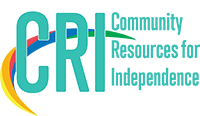They are the backbone of in-home care, the steady hands that provide comfort and assistance to those who need it most. Yet, their stories often go untold. Today, we shine a light on the experiences, challenges, and deep rewards of being a personal care aide (PCA) through a candid Q&A with real individuals in the field.
Meet Our PCAs:
- Sarah: A seasoned PCA with 10 years of experience, specializing in caring for elderly individuals.
- David: A PCA who transitioned from a different career path, now finding fulfillment in supporting adults with disabilities.
- Maria: A young PCA balancing her studies with providing care, drawn to the meaningful connections she forms.
Q: What drew you to become a personal care aide?
Sarah: I always had a caring heart and enjoyed helping others. The flexibility of PCA work allowed me to be there for my family while using my skills to make a real difference in someone’s life.
David: I wanted a career change that was more personal and impactful. I discovered the PCA field offered a chance to connect with individuals and help them live their lives with dignity and independence.
Maria: I’m passionate about social justice and community support. Being a PCA allows me to directly contribute to the well-being of others while gaining valuable life experience.
Q: What are the biggest challenges you face in your role?
Sarah: The emotional toll can be significant. Witnessing the struggles of some clients can be difficult, and balancing their needs with my own emotional well-being is crucial.
David: Every client is unique, and their needs can evolve quickly. Adapting to different personalities, medical conditions, and communication styles requires constant flexibility and problem-solving.
Maria: Time constraints can be a challenge. Balancing visits with multiple clients and ensuring quality care for each requires efficient organization and clear communication.
Q: What are the most rewarding aspects of being a PCA?
Sarah: Seeing the positive impact on clients’ lives is incredibly fulfilling. A simple conversation, a shared meal, or helping them regain a sense of independence brings immense joy.
David: Building genuine connections with clients is truly special. The trust and gratitude they express make the challenges worthwhile, knowing you’re making a positive difference in their daily lives.
Maria: Learning from each client’s unique experiences and perspectives is a continuous source of growth. It’s humbling to be entrusted with their care and witness their resilience and strength.
Q: What advice would you give someone considering becoming a PCA?
Sarah: Empathy, patience, and good communication are essential. Be prepared for emotional challenges, but also know the rewards are immense. Self-care is crucial to avoid burnout.
David: Research the field thoroughly and understand the demands. Be open to learning new things and adapting to different situations. A genuine desire to help others is key.
Maria: Don’t underestimate the impact you can have. This is a demanding but incredibly rewarding career path. Be organized, compassionate, and willing to learn, and you’ll find immense satisfaction in supporting others.
Beyond the Q&A
The stories of these PCAs paint a vivid picture of a profession that demands dedication, resilience, and a deep well of compassion. They are the unsung heroes of our communities, providing essential support and fostering meaningful connections with those who need it most. As we celebrate their contributions, let us also acknowledge the importance of valuing and supporting this vital workforce. By recognizing their challenges, celebrating their achievements, and ensuring they have the resources they need, we can empower PCAs to continue providing the invaluable care that makes a world of difference.

